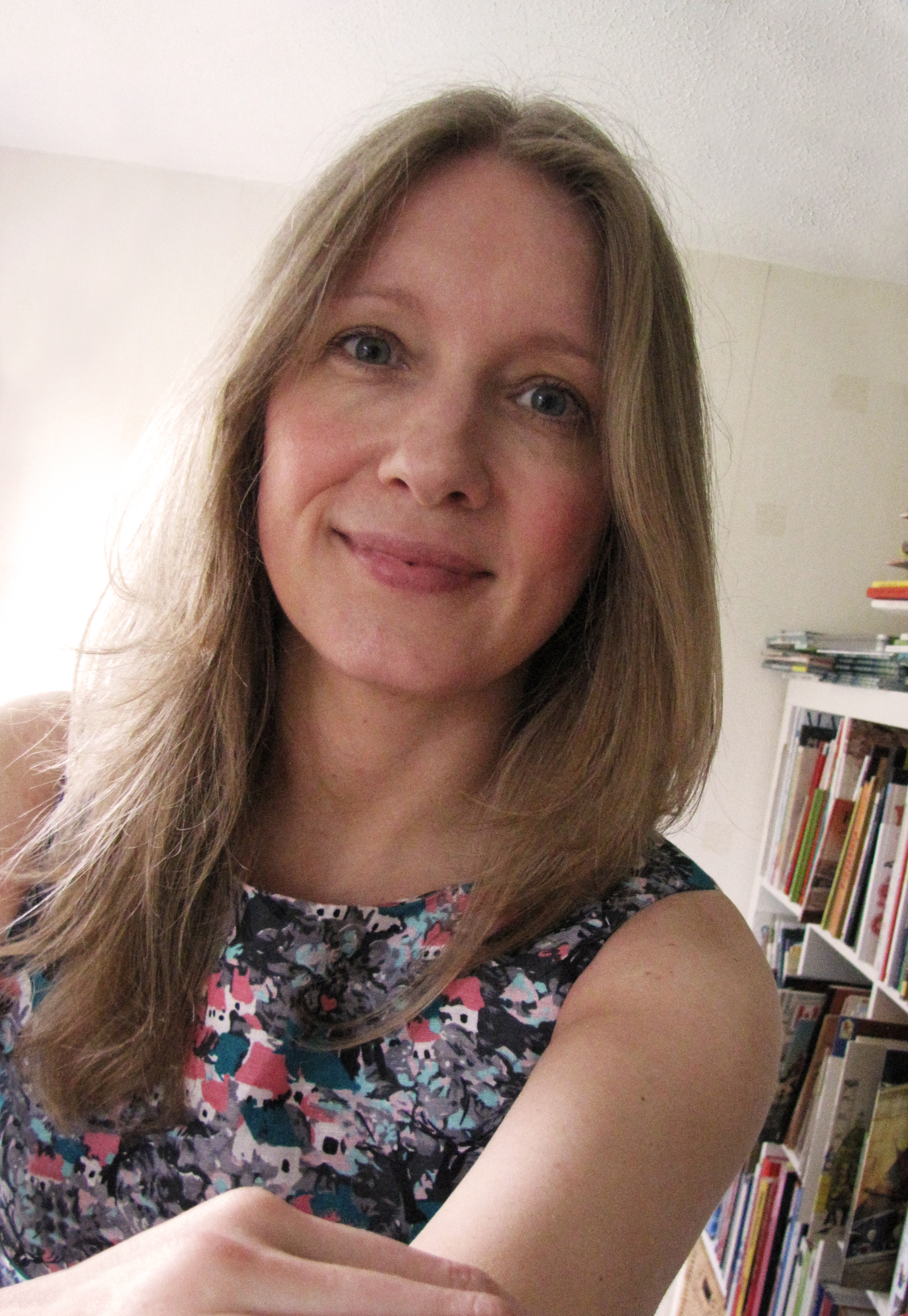Victoria Turnbull
, b. 1976
Victoria Turnbull is a British author, mainly of picture books for children. She studied Children’s Book Illustration at the Cambridge School of Art.
She published following works:
- The Sea Tiger (2014)
- Kings of the Castle (2016)
- Pandora (2016)
Contact (accessed: May 30, 2018).
Bio prepared by Anna Mik, University of Warsaw, anna.m.mik@gmail.com
Questionnaire
1. When I was reading Pandora, I had a feeling that Your inspiration drawn from Greek Mythology was a subtle one, yet vividly present in the story. We encounter the world with no hope within and yet – it is still out there. What did draw You to write with Classical Antiquity in the background and what challenges did You face (if any) in adapting the Pandora’s myth?
I didn’t set out to adapt Pandora’s myth. I was writing a story about regeneration and hope, the myth seemed to fit this idea. It’s a Greek Myth that I recall well from my childhood and therefore came naturally to mind in connection with the story I was writing. So it was an influence rather than an adaptation.
2. In the "original" story Pandora was a woman that was a little bit too curious… Has Pandora from your story done something wrong? Is this her punishment?
No, the fox in my story has done nothing wrong. She has been forced to adjust to circumstances brought about by man. I think we, humankind, are all guilty of putting our own needs above the needs of the natural world.
3. The main character is a female AND an animal. Culturally both – women and animals, are still being excluded from the hegemonic discourse. Why did you choose a vixen? Was that a conscious choice?
Yes, it was a conscious decision. I wanted an intelligent and strong protagonist capable of existing in unthinkable conditions. I also considered the type of animal most likely to be able to survive such an environment and once I’d made the connection with the myth, Pandora seemed a fitting name.
4. The setting is a wasteland, with no life in it – no trees, grass, nature as we still know it. Was the contemporary world an inspiration to create this one?
Yes, I was considering the future of our world and the possible outcome if we continue along our current path – one where we have destroyed most of the natural world, including ourselves.
5. The second interpretation might be a little bit far-fetched but, please, just tell me what do you think about it. In the Greek Myth we read that Pandora was made from the same clay as her box. Thus, if we acknowledge the tradition of treating women as the source of all miseries, hope would be the only thing that is making women worth something – and that would be the ability to give birth to children. SO – if we read your story as a reinterpretation of the Greek story in such a manner, would the wasteland be an infertile womb of a contemporary woman that cannot have children? Hope that enters this world would be an anticipation of bringing back life to this world. What do you think about this kind of interpretation?
Certainly, I agree hope is an anticipation of bringing back life to this world and women are integral to that. I do not believe procreation is the only thing that gives women their worth, but I do think as a society that if often how women are regarded. So I find this interpretation very interesting.
6. Can we read the Pandora story as a metaphor of depression?
I was going through I difficult period of emotions whilst I was writing Pandora so my own experiences certainly played a part. I believe we are not always in control of everything but northing stays the same forever. We/the world are in a constant state of change. Therefore even when a situation seems impossible, there is always hope.
7. Are you planning any other myth-based rewritings?
Not at the moment but I think myths are an amazing source of inspiration. All my stories are a collection of ideas going around in my head and when connections form, a story begins to take shape.
8. Why do you think classical / ancient myths, history, and literature continue to resonate with young audiences?
I think because there is truth to them. You can tell the same story is many different ways, and every generation needs to try to understand the world they are living in.
9. Last but not least J I need some encyclopaedia-like information about you. I found a piece of it on your website, still, I need your birth date, place where you were born, and so on. Can you provide me with that?
I was born in York on 18th October 1976.
Prepared by Anna Mik, University of Warsaw, anna.m.mik@gmail.com
Records in database:



